Storm Safety and Preparation
We’re committed to providing reliable, uninterrupted electrical service to our members. But sometimes, storms can cause power outages. When Mother Nature damages our electrical system, the safety of our members and employees matters most. We encourage you to use the resources below to prepare and protect your family before, during and after a storm or major outage. We also want to remind you that if you see downed or damaged power lines, stay back and call us immediately at 770-429-2100.
Advance planning for severe storms or other emergencies can reduce stress and keep you and your family safe. Install our free mobile app to stay informed of restoration efforts and other important co-op news and information, and visit the National Weather Service storm safety center for additional storm safety information.
Before a Storm
Is your family prepared to ride out a storm? Follow the tips below as a starting point for storm and disaster preparedness, and visit ready.gov for additional resources.
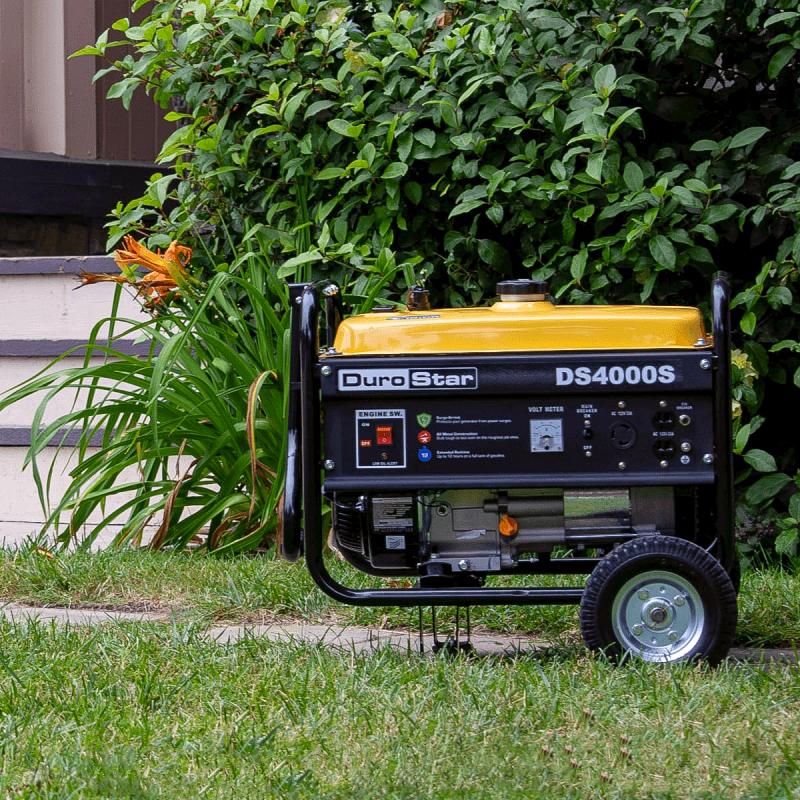
Buying a Generator
Check out our guide to buying the right sized generator for your needs, then head over to our Amazon Shop to purchase. Remember to always follow manufacturer instructions for generator inspections and maintenance.

Storm Safety Guide
Download our Storm Safety Guide to access tips, information, resources and safety precautions for before, during and after a storm.
Medical Devices
If you or a family member require medical devices powered by electricity or medicine that requires refrigeration, talk with your medical provider about your power outage plan. Prepare now by making alternate arrangements if needed. We also encourage members with special needs to make a plan for emergencies before they happen, and identify an emergency support network and preparedness resources.
During and After a Storm
Severe weather can leave more than damage in their wake—they can leave hidden dangers as well. When you’re dealing with storm cleanup or flood-damaged property, the prospect of an electrical accident is probably not top of mind. Check out the tips below to help you and your family stay safe. Check our app or outage center for power restoration updates, and listen to local news or a NOAA Weather Radio for storm and emergency information
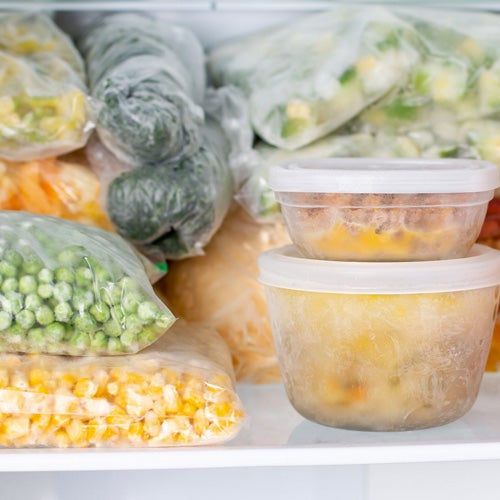
Food Safety
Learn how to keep food safe during an outage with tips from the USDA. Quick tip: A full freezer will keep its temperature for 48 hours if the door remains closed.
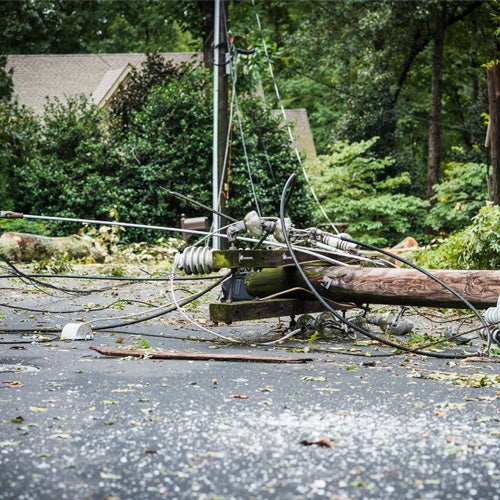
Downed Lines
Power lines that have fallen on the ground can carry an electric current strong enough to cause serious injury or possibly death. These tips can help you stay safe around downed lines and understand the different types of wires on power poles.
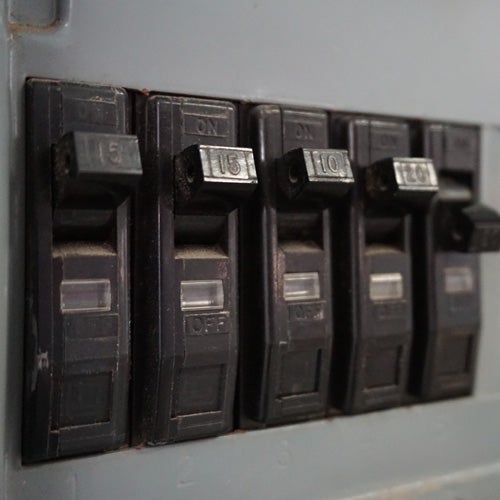
Circuit Breaker Box
Learn the location of your main electrical panel and how to reset your circuit breakers if they trip during an outage. Never attempt to turn off power at the breaker box if you must stand in water to do so and disconnect immediately if an appliance emits sparks or sizzling sounds.

Storm Safety Videos
Our system is designed to restore as many members as possible through automation from our Power Control Center. Beyond that, it’s boots on the ground, and our teams work around the clock until all power is restored. Check out our videos for tips to stay safe until your power is restored.
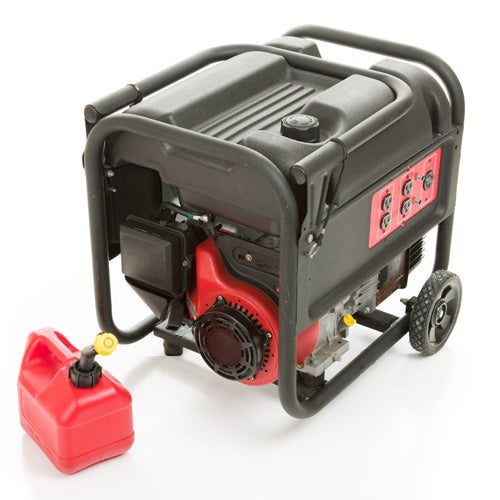
Generator Safety
If you use a portable generator, be sure a transfer safety switch has been installed, or connect appliances directly to the generator. This prevents electricity from traveling back through the home to power lines—what is known as backfeed. Backfeed creates danger for anyone near lines, particularly our crews working to restore power. Find more generator safety tips below.
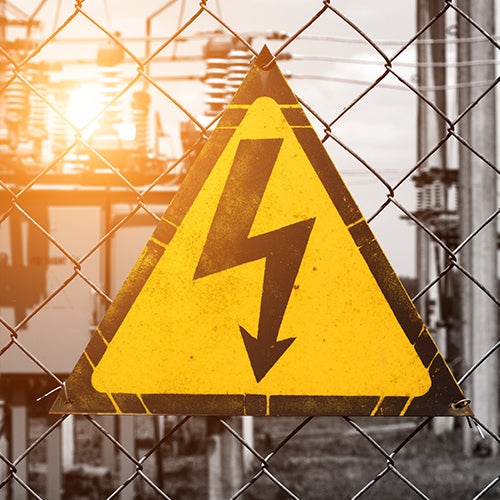
Other Safety Tips
The safety of our employees, members and the community is a top priority. Check out some other tips to keep you and your family safe year-round.
- If you see downed or damaged power lines, stay back and call Cobb EMC immediately at 770-429-2100 or choose "Hazard" from the dropdown options on our Contact Us form.
- If you see a downed power line, move at least 10 feet away from the line and anything touching it. The human body is a ready conductor of electricity.
- The proper way to move away from the line is to shuffle away with small steps, keeping your feet together and on the ground at all times. This will minimize the potential for a strong electric shock. Electricity wants to move from a high voltage zone to a low voltage zone—and it could do that through your body.
When an outage occurs, our crews work to safely restore power to as many people as possible, as fast as we can. To do this, we typically start with heavily populated areas and hazardous situations first as our top priorities. The only medical accommodations we can make is to prioritize hospital restoration and critical medical facilities, should they go down. Members who use medical equipment powered by electricity or medicine that requires refrigeration should make alternate arrangements if needed. Learn more about our steps to restoring power.
In cases of widespread destruction to our electrical system, outages may extend for hours or days. We encourage members to make alternate arrangements to avoid extreme heat or cold. Visit the American Red Cross for a list of warming shelter locations that are open to the public throughout our service area.
- When possible, turn off major appliances, TVs, computers and other sensitive electronics. This will help avert damage from a power surge, and will also help prevent overloading the circuits during power restoration. That said, do leave one light on so you will know when power is restored.
- Keep flashlights in multiple rooms. Flashlights are safer than candles, but if you must use candles, never leave them unattended and make sure they're a safe distance away from anything flammable.
- Appliances and electronics are extremely sensitive to electrical spikes from lightning or other faults. Before electrical storms, disconnect these items from the electrical source.
- Know the difference between a weather-related watch, warning or advisory.
Severe weather and storms are outside of Cobb EMC's control and we cannot predict the damage that will hit our service area. Any damages caused by severe weather/storms can be handled by most home owner's insurance providers. Since this out of Cobb EMC's control we cannot provide any compensation for loss of food, work or property damage.
